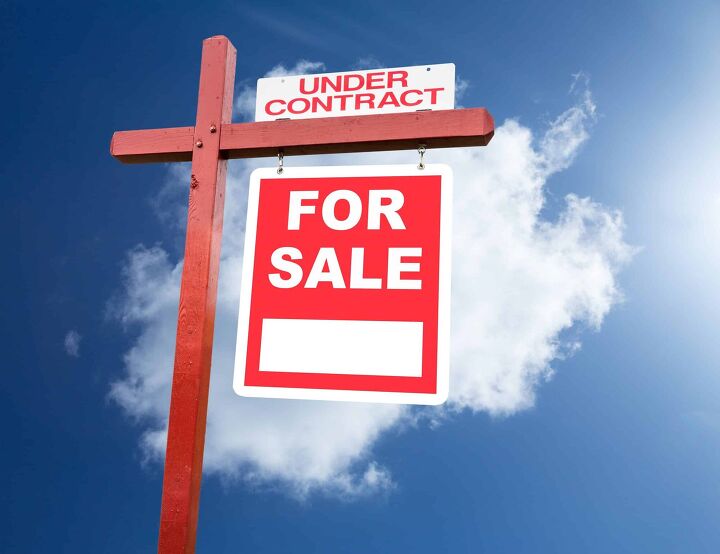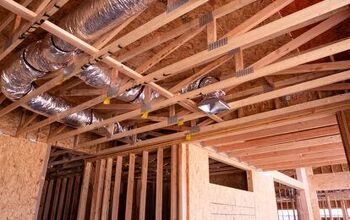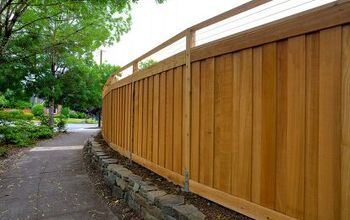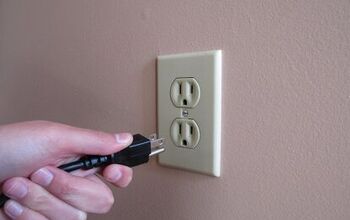What Does "Active Under Contract" Mean?

Very few industries have as much dedicated lingo as the world of real estate. If you’ve ever listened to real estate investors speak, then you’d agree. It almost sounds like its own language! One of the more confusing terms that you might run into is “active under contract,” and it’s a term used in the middle of the home sales process.
An “Active Under Contract” listing means that the seller accepted an offer but that the house is still on the market. Houses can be listed as “Active Under Contract” until the buyer and seller close on the house. Potential buyers can make an offer on a house if it is “Active Under Contract”.
If you recently spotted your dream home being labeled as “active under contract,” it may be a little disheartening. You really want that house! So, do you actually have a shot at it? What are you even allowed to do with a house that’s active under contract? This guide will clue you in, and help you figure out your options.
What Does “Active Under Contract” Mean?
In most retail situations, buying something means that you will spend some time shopping around and then eventually just shell out cash to bring it home. When it comes to buying a house, the process is entirely different. It takes around 30 to 60 days to close on a house, and that’s on average!
This means that there are a couple of different steps. They are:
- Finding a house you like. This house is on the market, and anyone can make an offer.
- Making an offer. You and others who like it submit offers on how much you want to pay for the house.
- Having an offer accepted. This is the stage you are at when you’re “active under contract.”
- Getting final approvals. In order for a house to be sold, it has to have all the contingencies in the contract completed. The bank will also have to finally approve the loan. If, for some reason, the deal doesn’t go through, it’s back on the market and no longer active under contract.
- Closing. When everything is ready to move forward, the house will go to a title agency and close. It’s officially off the market.
Is The Sale Final Once It’s Active Under Contract?
While the buyer and seller may have come up with an offer and agreement that they want to pursue, the home still isn’t in the final sale stages. It’s only when the full check for the house is exchanged for keys that you will have a sale that’s final. Being active under contract means that you’re in a grey area where it probably will be sold, but there’s still a chance that it won’t.
How Long Does A House Stay Active Under Contract?
A house will be active under contract until one of two things happens. Either the house gets closed on, or the deal falls through and lands the house back on the market.
Can You Make An Offer On A House That’s Active Under Contract?
Since the house is not closed on, owners are still allowed to check out other offers that are given to them on their house. So, the answer is yes. You can make an offer. However, there’s a major caveat that you need to be aware of that could throw a wrench in your plans to snap up that home.
Because an offer has already been accepted for the home purchase, the homeowner has to follow through with the first offer unless the deal falls through for one reason or another. This can be caused due to a wide range of contingencies that are written in contracts, and it’s a fairly common occurrence.
Still, you can make an offer. In most cases, all you can do is wait to see if the house makes it to closing. These offers collected from interested parties are referred to as “backup offers” and serve as a placeholder for the next buyer(s) in line for the property.
If a breach of contract occurs (the sale falls through with the original offeror because of a failure to perform terms), the seller can move on to the next offer. In this case, the buyer will likely reach out to you to accept your offer. When demand is high and inventory is low, backup offers tend to be relatively standard in the real estate industry.
What Would Make A Home Sale Fall Through?
There are plenty of reasons why a home sale may fall through while it’s active under contract. Many of these reasons have to deal with contingencies, which are stipulations that must be met before a home sale can be closed. Nearly every real estate contract contains contingencies, and the deal can only close until these contingencies have been met. Some of the most common types of contingencies include:
- Home Repairs. Before a buyer puts down money, they need to have an inspection. If the inspection uncovers unforeseen issues, they may hit the pause button to figure out what to do. Sometimes, a buyer won’t want to buy a home unless certain things are fixed. If those issues aren’t addressed or the seller can’t agree to a fix, the deal will fall apart.
- Appraisal Contingencies. To buy a house, an appraiser will need to be hired to help determine the true price of the house. If the value is lower than the offer, the buyer may need to get additional funding before the deal can continue. If that can’t happen, the deal collapses.
- Mortgage Contingencies. There are some moments where buyers may make an offer on a house even though they didn’t get approved for a mortgage yet. If the buyer can’t get financing for the house and they can’t pay cash, there is no way to make the sale. This contingency will make the sale fall through, penalty-free.
- Home Sale. Many home buyers won’t be able to put down money without selling their existing home. If they can’t find a buyer for their current home, there is no way for them to be able to afford the house they want to buy. As a result, the sale will fall through.
- Kick-Out Clauses. This is a little more complicated than others on this list, but we’ll give you a general idea of what it means. If a home seller has a kick-out clause, they are allowed to review other offers and possibly take them up on them as long as the other offer has no time-based contingencies.
Until the outlined contingencies are fulfilled, the property remains visible and available for viewing online.
The standard length of contingency period, or closing stage, of a real estate transaction could take as little as a few days to several weeks. However, under normal real estate market conditions, the closing stage takes an average of 30 days. In a hot market, the closing stage can take much longer due to the lender and/or appraisers having difficulty keeping up with volume and demand.
How Common Is It For A Sale To Fall Through?
This all depends on the neighborhood as well as the type of buyers the house attracts. In most parts of the country, it’s fairly common to see a deal collapse when it’s active under contract. This is why it’s a good idea to make an offer, even if it’s in contract. You never know what may happen in two weeks.
What Comes After “Active Under Contract?”
Once all of the contingencies are met, the home is given a “Pending” listing status and is placed in the escrow period. This is when all of the final paperwork, signatures, and disbursement of funds occurs. While “Active Under Contract” may take several days or weeks, “Pending” is much shorter, usually only a day or two.
In fact, pending deals almost always make it to closing and homes listed in this stage are very unlikely to become available again. The final stage that a property reaches is sold, or “closed.” In this stage, the home is no longer on the market.
Those who seek out sold listings are usually in the planning stage of selling their own home and are researching the prices of comparable homes in their area that have recently sold.
Our Final Take
When a real estate sale is said to be active in contract, it means that they are approaching the final stretch of the sales process. They have agreed on an offer, but they still need to make sure that everything is good to go before the sale closes. Technically, this means that the house is on the verge of leaving the market.
Though it might be cutting close to closing time, interested buyers can still make an offer on a home they like. After all, the home sale hasn’t closed yet and there’s no telling whether or not your home’s buyers will actually pull through. So, don’t be too intimidated by a house that has this label. You should still give them an offer and see how it works out for you.

Ossiana Tepfenhart is an expert writer, focusing on interior design and general home tips. Writing is her life, and it's what she does best. Her interests include art and real estate investments.
More by Ossiana Tepfenhart












![10 Best Cordless Leaf Blowers – [2022 Reviews & Ultimate Guide]](https://cdn-fastly.upgradedhome.com/media/2023/07/31/9070789/10-best-cordless-leaf-blowers-2022-reviews-ultimate-guide.jpg?size=350x220)
![How Much Weight Can a 4×4 Support Horizontally? [It Depends!]](https://cdn-fastly.upgradedhome.com/media/2023/07/31/9070333/how-much-weight-can-a-44-support-horizontally-it-depends.jpg?size=350x220)













